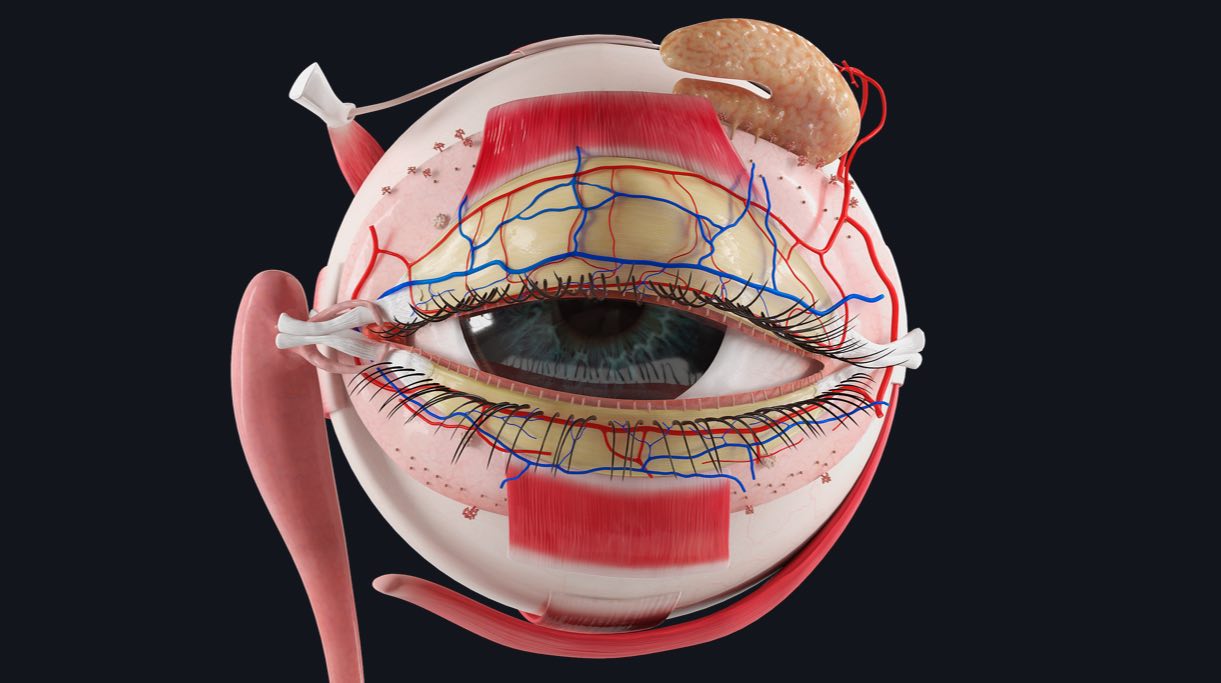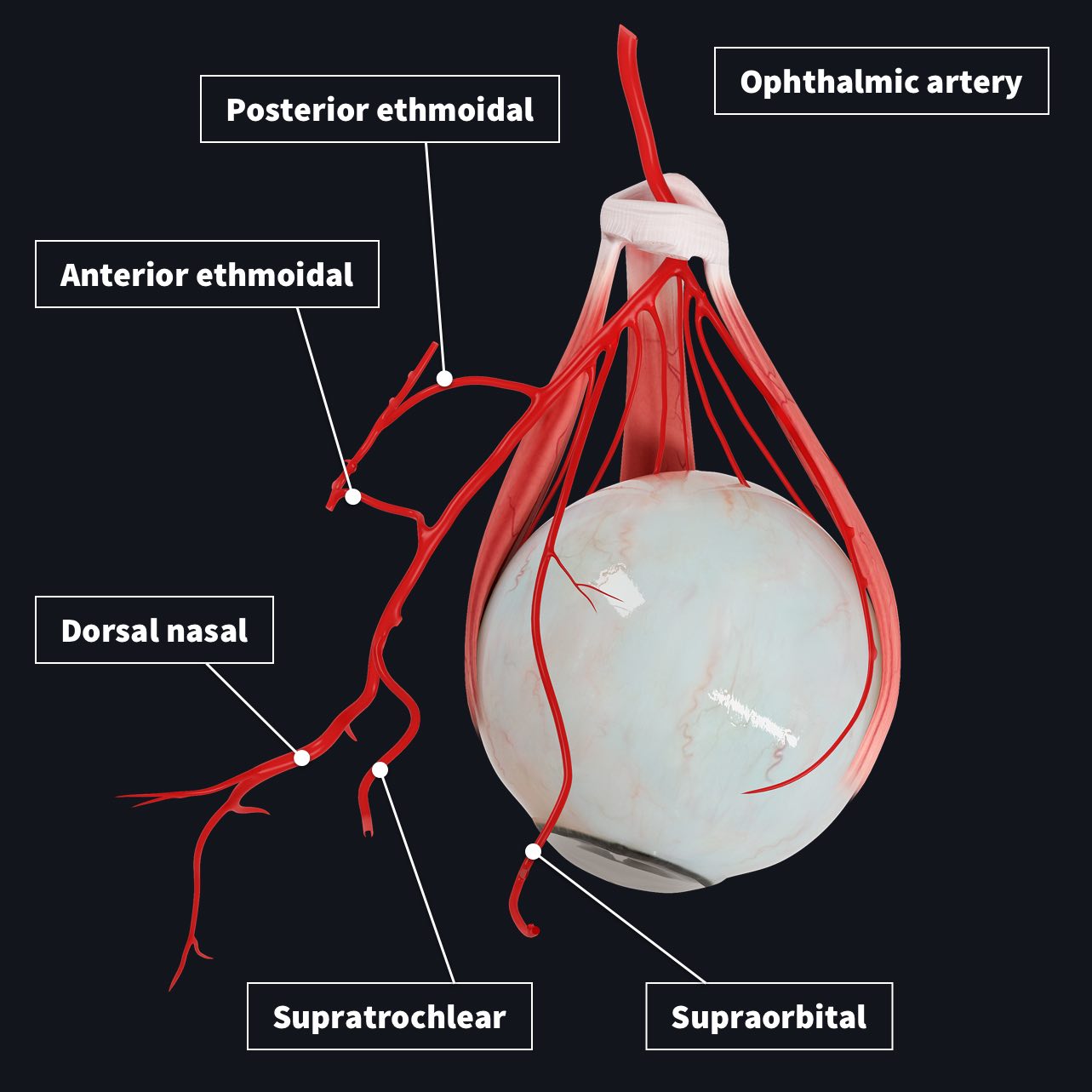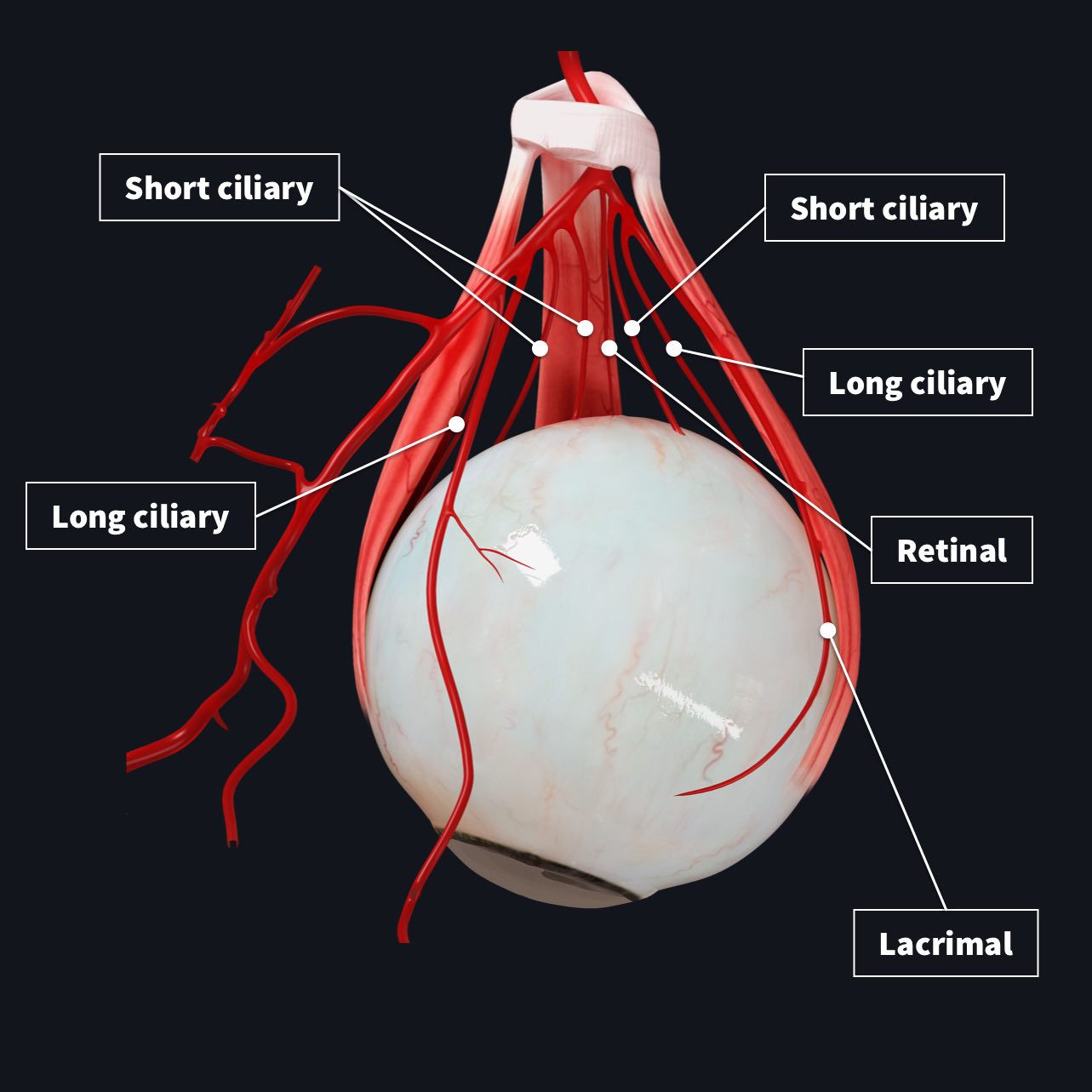
Have you ever taken a photo with friends, but then on a closer look your eyes come out piercing red ?? Red eyes in photos are caused by the light from the flash bouncing off the capillaries in your eyes ?!

The main source of arterial blood to the eyeball comes from the ophthalmic artery ?, one of the branches of the internal carotid. Several arterial branches arise from the ophthalmic artery to supply different components of the eye.

Use the mnemonic DRMCLESS to help remember these branches
- D: dorsal nasal artery- one of the terminal branches of the ophthalmic artery, it gives off several branches that supply the nasolacrimal sac and the dorsum of the nose.
- R: (central) retinal artery- supplies optic nerve and inner layers of the retina.
- M: muscular artery (not seen above)- often forms groups that accompany the oculomotor nerve to supply extraocular muscles. Also gives off anterior ciliary arteries to supply the ciliary plexus, and anterior conjunctival arteries to supply the conjunctiva.
- C: ciliary arteries (long & short)- these arteries pierce the sclera on the posterior part of the eye. They supply the sclera, choroid and anterior segment of the eye.
- L: lacrimal artery- mainly supplies the lacrimal gland, eyelids, conjunctiva, and parts of the dura mater.
- E: ethmoidal arteries (anterior & posterior)- branches descend into nasal cavity and further meningeal branches supply dura mater.
- S: supraorbital artery- exits the orbit through the supraorbital foramen. The portion within the orbit supplies the superior rectus and levator palpebrae superioris. The extraorbital portion supplies the skin, muscles, and periosteum of the forehead.
- S: supratrochlear artery- as one of the terminal branches, it leaves the orbit and ascends superiorly to supply skin, muscles, and periosteum of the forehead.

Because the central artery of the retina supplies the internal surface of the retina, it is the most important. Total occlusion of this artery can quickly result in blindness.
Learn about the eye in 3D with the world’s most advanced Head & Neck model, in addition to the Eye, Retinal Layers, and Photoreceptors Detailed Models. To see how Complete Anatomy can transform your medical learning today, sign up for a FREE 3-day trial.
